A maritime traffic jam grew to more than 200 vessels Friday outside the Suez Canal and some vessels began changing course as dredgers and tugboats worked to free a giant container ship that is stuck sideways in the waterway and disrupting global shipping.

One salvage expert said freeing the cargo ship, the Ever Given, could take up to a week in the best-case scenario and warned of possible structural problems on the vessel as it remains wedged.
The Ever Given, owned by the Japanese firm Shoei Kisen KK, got wedged Tuesday in a single-lane stretch of the canal, about 6 kilometres (3.7 miles) north of the southern entrance, near the city of Suez.
Dredgers have stopped removing sand around the bow of the vessel and tugboats were preparing another towing attempt, said Lt. Gen. Osama Rabei, head of the Suez Canal Authority, in a statement Friday night. There was no immediate word on whether they have managed to budge the skyscraper-sized vessel, and previous attempts with tugboats were unsuccessful.
A team from Boskalis, a Dutch firm specializing in salvaging, was working with the canal authority with tugboats and a specialized suction dredger at the port side of the cargo ship’s bow. Egyptian authorities have prohibited media access to the site.
“It’s a complex technical operation” that will require several attempts to free the vessel, Rabei said in a statement.
Attempts earlier Friday to free it failed, said Bernhard Schulte Shipmanagement, the technical manager of the Ever Given.
The Suez Canal Authority said it welcomed international assistance. The White House said it has offered to help Egypt reopen the canal. “We are consulting with our Egyptian partners about how we can best support their efforts,” press secretary Jen Psaki said.
An initial investigation showed the vessel ran aground due to strong winds and ruled out mechanical or engine failure, the company said. GAC, a global shipping and logistics company, had previously said the ship had experienced a power blackout, but it did not elaborate.
Bernhard Schulte said two canal pilots had been aboard when the ship got stuck. Such an arrangement is customary, but the ship’s captain retains ultimate authority over the vessel, according to experts.
Pictured in this image taken from space is the grounded container ship Ever Given in the southern section of the Suez Canal. The suspension of traffic through the narrow channel linking Europe and Asia has deepened problems for shipping lines that were already facing disruption and delays in supplying retail goods to consumers. (Roscosmos Press Office/TASS (Photo by Roscosmos Press OfficeTASS via Getty Images)In addition to the over 200 vessels waiting near the canal, more than 100 ships were en route to the waterway, according to the data firm Refinitiv.
Apparently anticipating long delays, the owners of the stuck vessel diverted a sister ship, the Ever Greet, to head around Africa instead, according to satellite data.

Others also are being diverted. The liquid natural gas carrier Pan Americas changed course in the mid-Atlantic, now aiming south to go around the southern tip of Africa, according to satellite data from MarineTraffic.com.

Get breaking National news
About 10% of world trade flows through the canal, which is particularly crucial for transporting oil. The closure also could affect oil and gas shipments to Europe from the Middle East.
Ships anchor in Lake Timsah, Ismailia, halfway through Egypt’s Suez canal on Thursday, March 25, 2021. At least 150 vessels are waiting to use the Suez Canal after the skyscraper-sized Ever Given wedged across the vital waterway, according to canal service provider Leth Agencies. It says the backup Thursday affected ships both needing to travel into the Mediterranean and the Red Seas. (Associated Press/ Sam Magdy)Oil markets are absorbing the disruption for now, said analyst Toril Bosoni.
“Oil inventories have been coming down but they are still relatively ample,” he told The Associated Press, adding that he believes the impact might be more pronounced in the tanker sector than in the oil industry.
“We are not losing any oil supply but it will tie up tankers for longer if they have to go around” the tip of Africa, he said, which is roughly an additional two-week trip.
At the White House, Psaki added that the U.S. does see “some potential impacts on energy markets from the role of the Suez Canal as a key bidirectional transit route for oil. … We’re going to continue to monitor market conditions and we’ll respond appropriately if necessary, but it is something we’re watching closely.”

Freeing the Ever Given is “quite a challenge” and could take five days to a week, .Capt. Nick Sloane, a maritime salvage expert who led the high-profile effort to salvage the cruise ship Costa Concordia in 2012 told the AP.
The Ever Given’s location, size and large amount of cargo make the operation more complex, Sloane said. The operation should focus initially on dredging the bank and sea floor around it to get it floating again, rather than unloading its cargo, which could take weeks.
That’s because the clock is also ticking structurally for the vessel, he added.
“The longer it takes, the worse the condition of the ship will become, because she’s slowly sagging,” said Sloane, vice-president of the International Salvage Union. “So ships are designed to flex, but not to be kept at that position with a full load of cargo for weeks at a time. So it’s not an easy situation.”
International companies are preparing for the effect that the canal’s blockage will have on supply chains that rely on precise deliveries of goods. Singapore’s Minister of Transport Ong Ye Kung said the country’s port should expect disruptions.
“Should that happen, some draw down on inventories will become necessary,” he said on Facebook.
The backlog of vessels could stress European ports and the international supply of containers, already strained by the coronavirus pandemic, according to IHS Markit, a business research group. It said 49 container ships were scheduled to pass through the canal in the week since the Ever Given became lodged.
The delay could also result in huge insurance claims by companies, according to Marcus Baker, global head of Marine & Cargo at the insurance broker Marsh, with a ship like the Ever Given usually covered at between $100 million to $200 million.
Those trying to free the vessel want to avoid complications that could extend the canal closure, according to an Egyptian official at the canal authority. The official spoke on condition of anonymity as he was not authorized to talk to journalists.
Satellite and photos distributed by the canal authority show Ever Given’s bow touching the eastern wall, while its stern appeared lodged against the western wall.
The Ever Given was involved in an accident in northern Germany in 2019, when it ran into a small ferry moored on the Elbe River in Hamburg. No passengers were on the ferry at the time and there were no injuries, but it was seriously damaged.
Hamburg prosecutors opened an investigation of the Ever Given’s captain and pilot on suspicion of endangering shipping traffic, but shelved it in 2020 for lack of evidence, spokeswoman Liddy Oechtering told The Associated Press.
Oechtering also could not say what the investigation had determined the cause of the crash was, but officials at the time suggested that strong winds may have blown the slow moving cargo ship into the ferry.
Associated Press writers David Rising in Berlin, Pan Pylas in London and Nancy Benac in Washington contributed.
- ‘Something just went off’: Canadians in Middle East describe ‘surreal’ Iran missile strikes
- Carney and India’s Modi strike new energy partnership
- As Iran conflict spirals, there are 85K Canadians in Middle East, GAC says
- ‘At first I cried’: How Iranian Canadians are reacting to the U.S. strikes in Iran

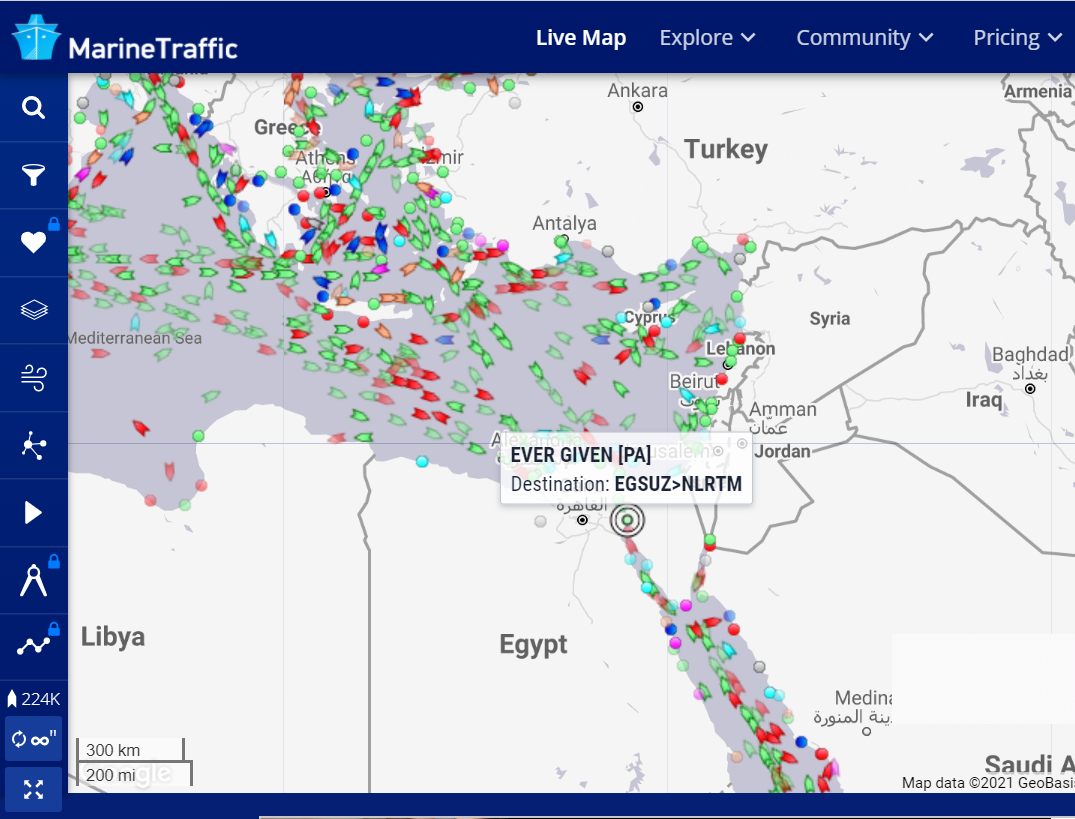
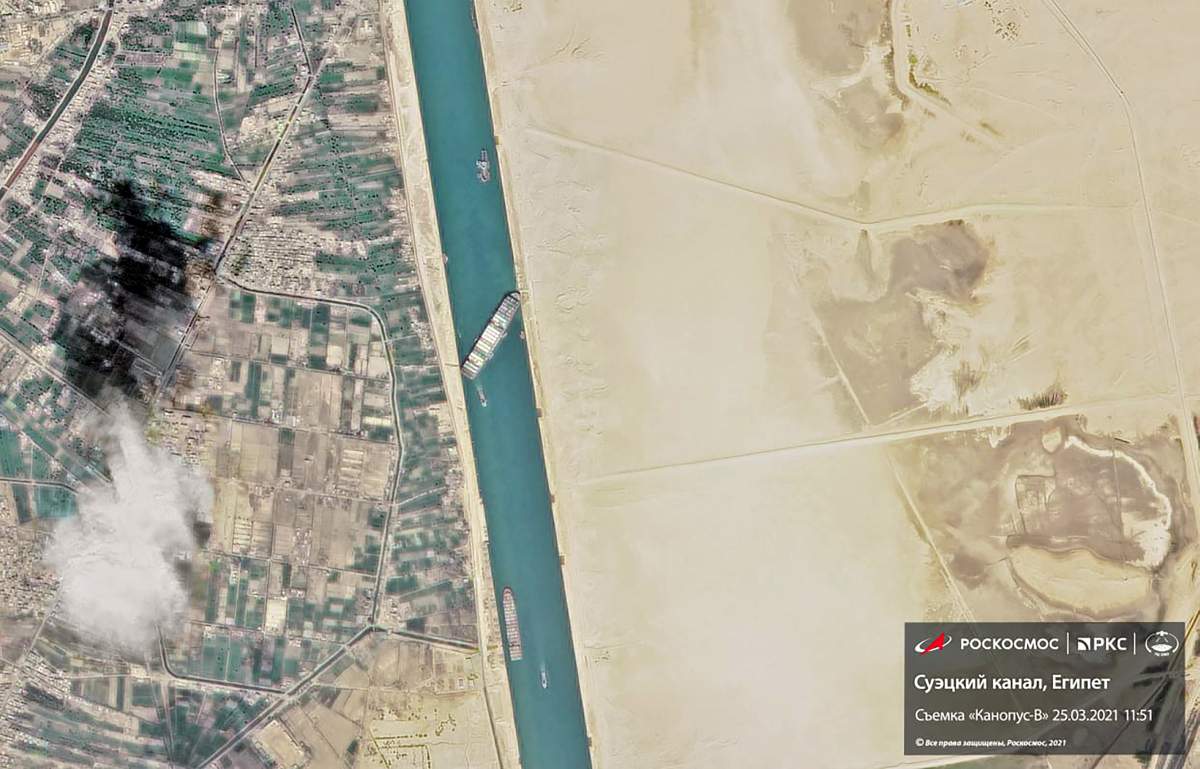
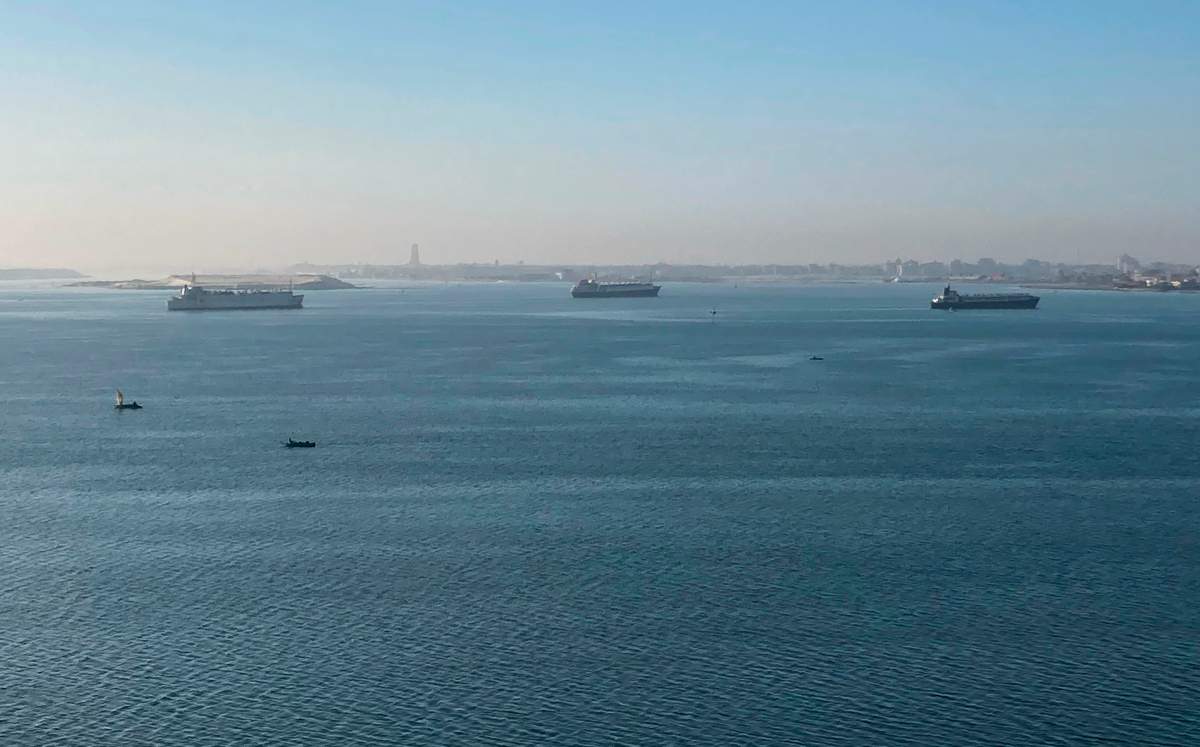


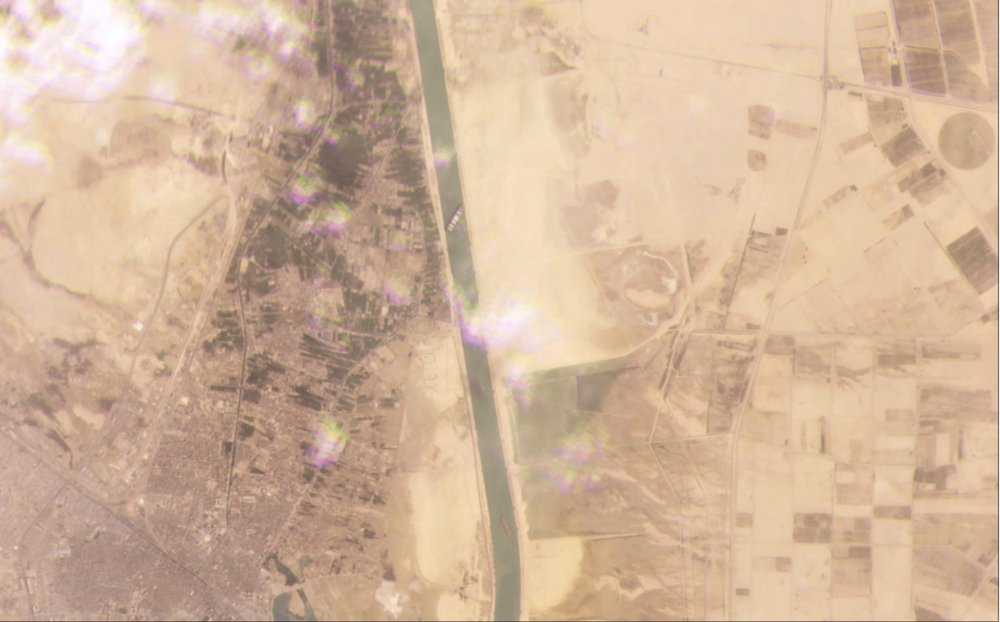
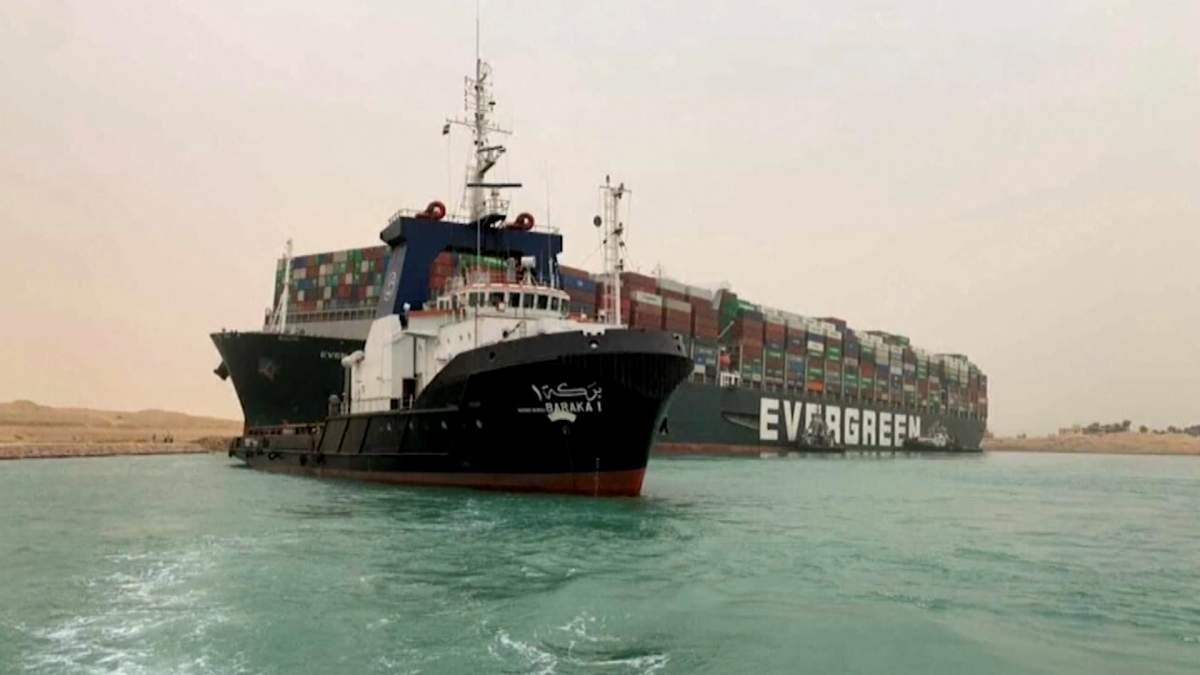

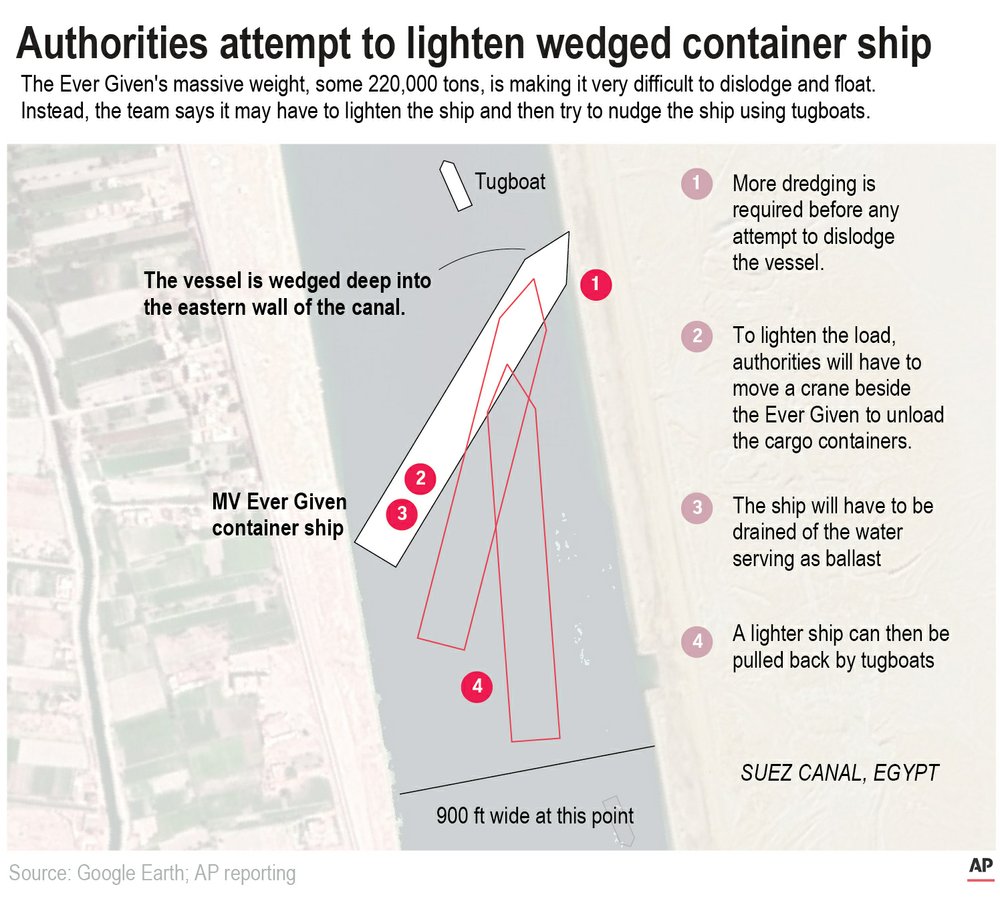

_848x480_1397405763961.jpg?h=article-hero-560-keepratio&w=article-hero-small-keepratio&crop=1&quality=70&strip=all)

Comments
Want to discuss? Please read our Commenting Policy first.